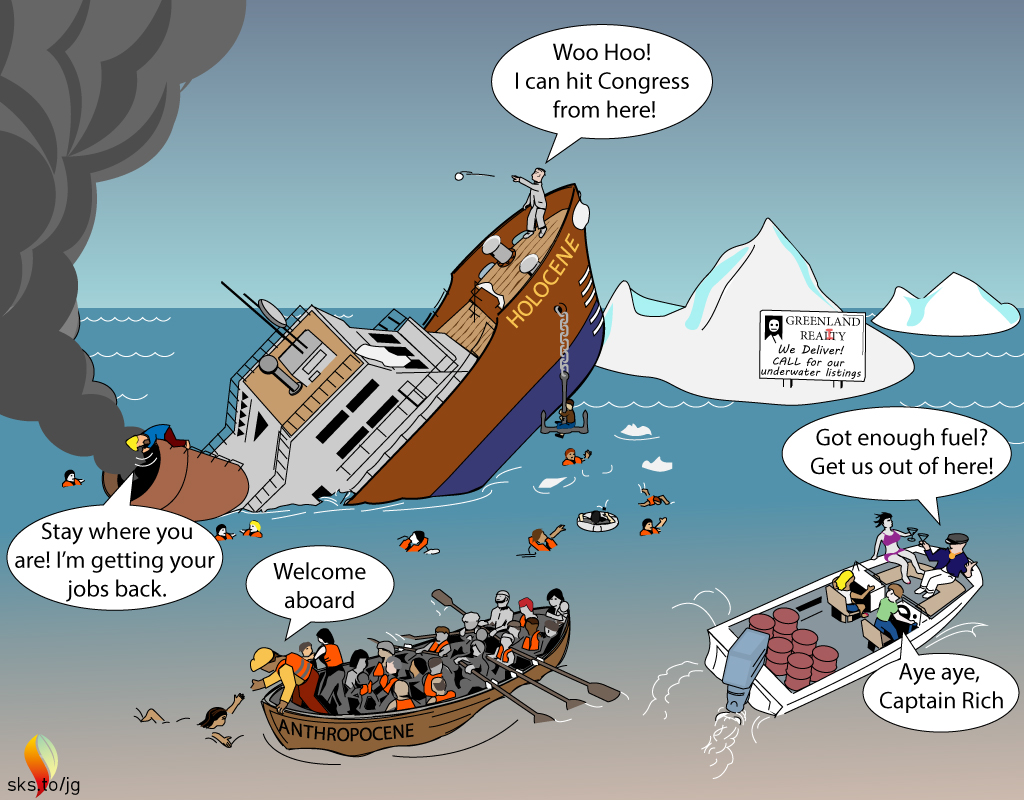SkS Analogy 12 - A Sinking ship reaches new heights
Posted on 15 May 2018 by Evan, jg
Tag Line
A sinking ship reaches new heights.
Elevator Statement
For a sinking ship the stern may be unusually low, the bow unusually high, and on average, the whole thing is going down. We cannot infer what is happening to the ship just by what is happening to one part. We must look at the entire ship.
It seems that at least one US Senator did not understand this relationship between the environment’s local extremes and global means when he found snow in front of the US capital, in February, and thought it meant that Global Warming had stopped.1 If he had watched the news that night, he might have realized that just a few hundred miles to the south it was unusually hot in Florida.
If we wait to take action on Climate Change until it is obvious to everyone that the ship is sinking, we may all be swimming.

Climate Science
As the Earth warms, some parts will still be cold. Let’s face it, the North and South Poles are just cold places. Some parts may experience colder temperatures for a while in response to a modified jet stream that draws cold, Arctic air further south than in the past. Cold days still happen, just less frequently.
Even as most of the world’s glaciers melt and the oceans rise, some places might still gain ice. This is because global warming causes the air to hold more moisture (7% more moisture for each 1°C of warming). Where this extra moisture hits cold air, the result is higher than normal snowfall. Places with increased snowfall that are persistently below 0°C gain ice.
Like the bow of a sinking ship that initially rises out of the water, isolated areas that defy the general trend do not mean the general trend is wrong. In time the trend will be obvious to all. But that point may be just before the ship disappears below the waves. We can’t wait for this to be obvious to US Senators before taking action.
Given enough time the ship eventually sinks, if we don’t get busy and start patching the holes.































 Arguments
Arguments






























Comments